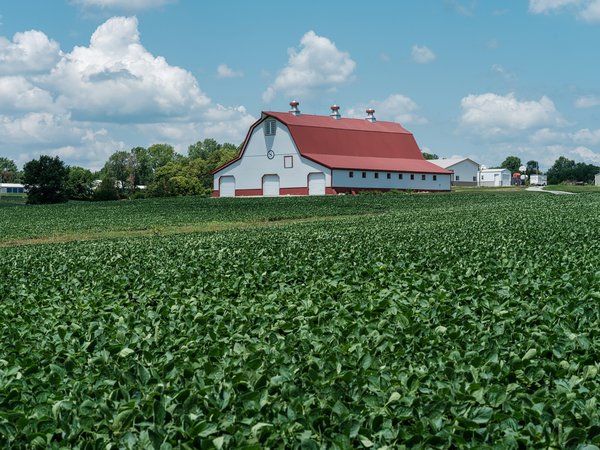Investing in agricultural properties has long been considered an attractive option for those looking to diversify their portfolios while contributing to the sustainability of rural landscapes. In the UK, this form of investment offers a variety of tax advantages that can significantly reduce financial burdens and enhance the overall return on investment. This article aims to explore these tax benefits in detail, providing you with valuable insights to make informed decisions about venturing into this sector.
Capital Gains Tax Relief
When it comes to selling a property, one of the biggest concerns is the capital gains tax (CGT) that can substantially reduce the profits. However, agricultural properties benefit from specific reliefs that mitigate these costs.
Capital Gains Tax is a tax on the profit when you sell an asset that has increased in value. It is the gain you make that is taxed, not the entire amount of money you receive. For agricultural properties, two primary CGT reliefs come into play: Entrepreneurs’ Relief and Rollover Relief.
Entrepreneurs’ Relief
Entrepreneurs’ Relief can significantly reduce the amount of CGT you pay. It allows you to pay tax at 10% on all gains on qualifying assets, up to a lifetime limit. This is particularly beneficial for those who are looking to sell part or all of their agricultural business. The relief can be a game-changer, turning a daunting tax bill into a much more manageable figure.
Rollover Relief
Rollover Relief is another advantageous provision available to agricultural property investors. It allows you to defer the CGT liability if you reinvest the proceeds into another qualifying asset within a three-year window. This can be particularly beneficial for those looking to expand or change their portfolio without incurring immediate tax penalties.
Both of these reliefs make agricultural property investment a more attractive option by easing the tax burden associated with capital gains, thereby allowing you to retain more of your profit for future ventures.
Inheritance Tax Relief
Inheritance Tax (IHT) is another significant concern for property investors, as it can greatly impact the value of an estate passed down to heirs. Fortunately, agricultural properties in the UK can benefit from substantial IHT reliefs that make them an appealing option for long-term investments.
Agricultural Property Relief
Agricultural Property Relief (APR) is a key component in reducing IHT liabilities. APR can provide up to 100% relief on the agricultural value of the property, making it possible to pass down valuable land and buildings to heirs without a hefty tax bill. To qualify for APR, the property must be used for agricultural purposes for at least two years if you occupy it, or seven years if it is let out.
Business Property Relief
In addition to APR, Business Property Relief (BPR) can offer up to 100% relief on the value of agricultural businesses, including farm machinery and livestock. This ensures that not only the land but also the operational aspects of the agricultural business can be passed on tax-efficiently.
These reliefs make it easier for families to retain agricultural properties through generations, promoting long-term sustainability and continuity in farming practices.
Income Tax Benefits
Income derived from agricultural properties can also enjoy several advantageous tax treatments. These benefits can make agricultural investment more lucrative by maximizing net income.
Loss Relief
One key advantage is the ability to offset farming losses against other income. If your agricultural business runs at a loss, you can offset this loss against other forms of taxable income, reducing your overall tax liability. This provision is particularly beneficial for new ventures where initial years might not be profitable.
Rent-a-Room Scheme
The Rent-a-Room Scheme is another attractive option for those owning agricultural properties with additional accommodation. This allows you to earn up to £7,500 per year tax-free from letting out furnished accommodation in your home. This can be particularly useful for farmhouses with annexes or cottages.
By leveraging these income tax benefits, you can optimize your taxable income, ensuring that your agricultural property investment remains financially viable.
VAT Relief
Value Added Tax (VAT) considerations are also crucial when investing in agricultural properties. The UK VAT system offers several reliefs that can benefit agricultural property owners.
Zero-Rating on Food Production
Products like livestock and crops are generally zero-rated for VAT purposes. This means that while you can reclaim VAT on expenses related to producing these goods, you do not have to charge VAT when you sell them. This zero-rating can provide a significant financial boon, reducing the cost of inputs and improving overall profit margins.
VAT Exemption on Certain Property Transactions
Certain transactions involving agricultural land and buildings can be exempt from VAT, provided they meet specific criteria. For example, the sale or lease of bare agricultural land is often VAT exempt, reducing the overall cost of property transactions and providing a smoother financial operation.
These VAT reliefs can make a significant difference in the overall financial outlook of your agricultural investments, allowing you to operate more efficiently and profitably.
Investing in agricultural properties in the UK offers a plethora of tax advantages that can make this form of investment highly appealing. From capital gains tax reliefs like Entrepreneurs’ Relief and Rollover Relief to inheritance tax benefits including Agricultural Property Relief and Business Property Relief, the tax landscape is designed to support the sustainability and profitability of agricultural investments. Income tax benefits such as Loss Relief and the Rent-a-Room Scheme further enhance the financial viability of these ventures. Finally, VAT relief on food production and specific property transactions can optimize your financial performance.
By understanding and leveraging these tax advantages, you can make informed decisions that not only enhance your financial returns but also contribute to the long-term sustainability of the UK’s agricultural landscape. Investing in agricultural properties can thus be a rewarding endeavor, both financially and environmentally.
